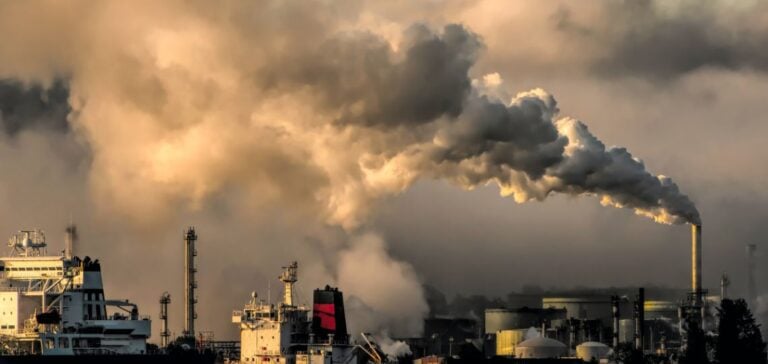Global temperatures have reached an unprecedented milestone in modern history. In 2024, the planet’s average temperature rose to 1.55°C above pre-industrial levels, surpassing the critical 1.5°C threshold established by the Paris Agreement. This estimate, published by the World Meteorological Organization (WMO), is based on the analysis of six international databases.
This crossing marks an alarming step in a decade characterized by heat records, fueled by the continued use of fossil fuels. The UN has called for immediate and innovative measures to mitigate the impacts of this warming, described by its Secretary-General António Guterres as an unprecedented global challenge.
Disasters on a global scale
Behind these figures lie devastating climate impacts across the globe. In California, fires labeled the “most destructive in history” caused considerable damage, while West Africa suffered record floods, putting millions in hardship.
In Saudi Arabia, extreme heat waves led to more than 1,300 deaths during the Hajj pilgrimage. The Caribbean and the United States were struck by hurricanes of unprecedented intensity, such as Helene, which caused massive destruction. These extreme events generated global economic losses estimated at $320 billion in 2024, according to reinsurer Munich Re.
A critical but temporary threshold
Despite this record warming, WMO experts highlight that a single year exceeding the 1.5°C threshold does not signify the complete failure of the Paris Agreement’s objectives, which aim for long-term stabilization of temperatures. However, this peak reflects a concerning trend.
The natural El Niño phenomenon, which promotes global warming, contributed to this record. However, scientists emphasize that the bulk of the temperature increase is due to human activity, particularly the continued use of coal, oil, and gas.
In 2025, the opposite phenomenon, La Niña, may result in a slight temporary cooling, but according to forecasts from the WMO and NASA, this will not suffice to reverse the current warming trajectory.
Oceans on the front line
Oceans, which absorb 90% of excess heat, continue to break alarming records. In 2024, their average surface temperature reached 20.87°C, exceeding the previous record set in 2023. This warming directly threatens marine ecosystems, such as coral reefs and fish stocks, while amplifying extreme weather events like hurricanes and storms.
Beyond immediate impacts on biodiversity, this oceanic warming affects marine and atmospheric currents, contributing to global climate disruptions. The scientific community stresses the urgency of reducing greenhouse gas emissions to mitigate these effects.
Insufficient commitments
The COP29, held in November in Baku, revealed limited progress. Although financial targets for climate were established, discussions on phasing out fossil fuels and reducing greenhouse gas emissions did not result in significant commitments.
Experts from the Intergovernmental Panel on Climate Change (IPCC) emphasize that limiting warming to 1.5°C rather than 2°C could significantly reduce the most catastrophic impacts of climate change. However, global efforts remain insufficient to achieve these goals.






















